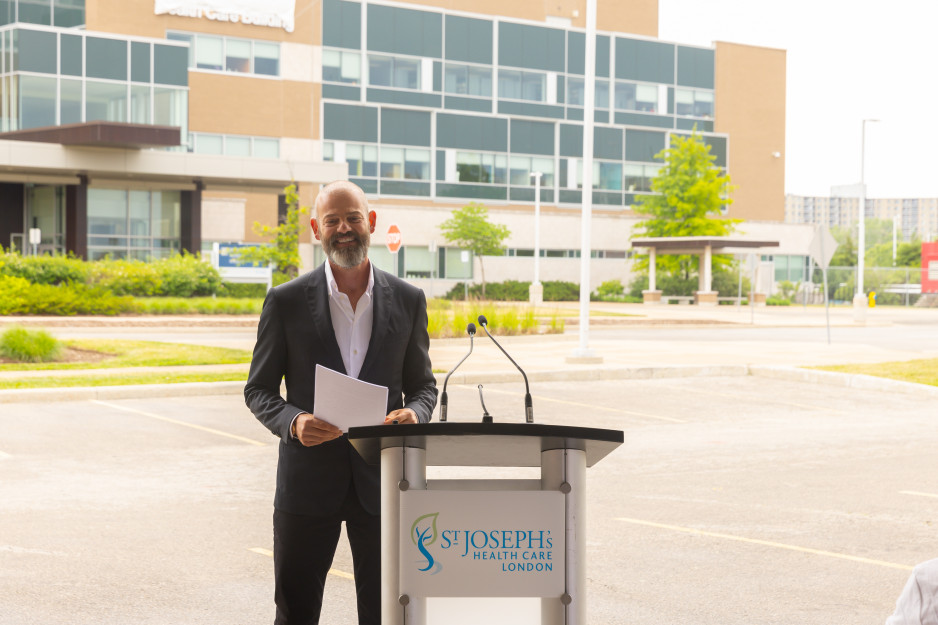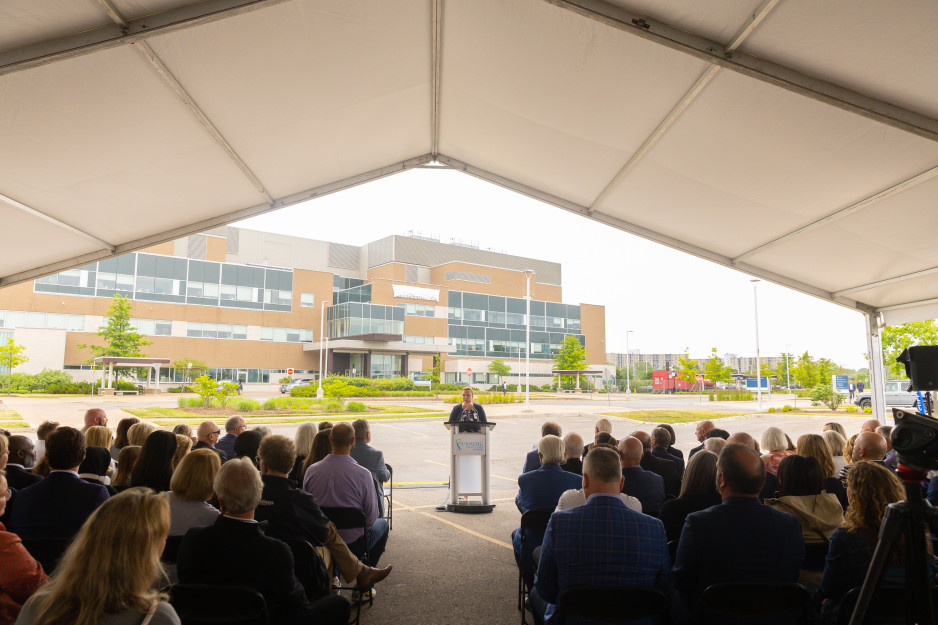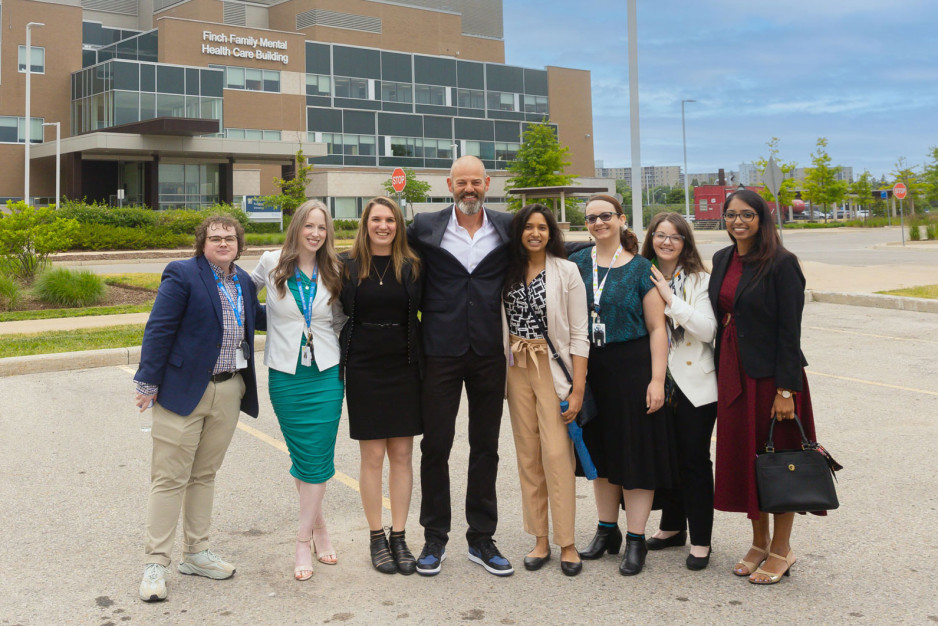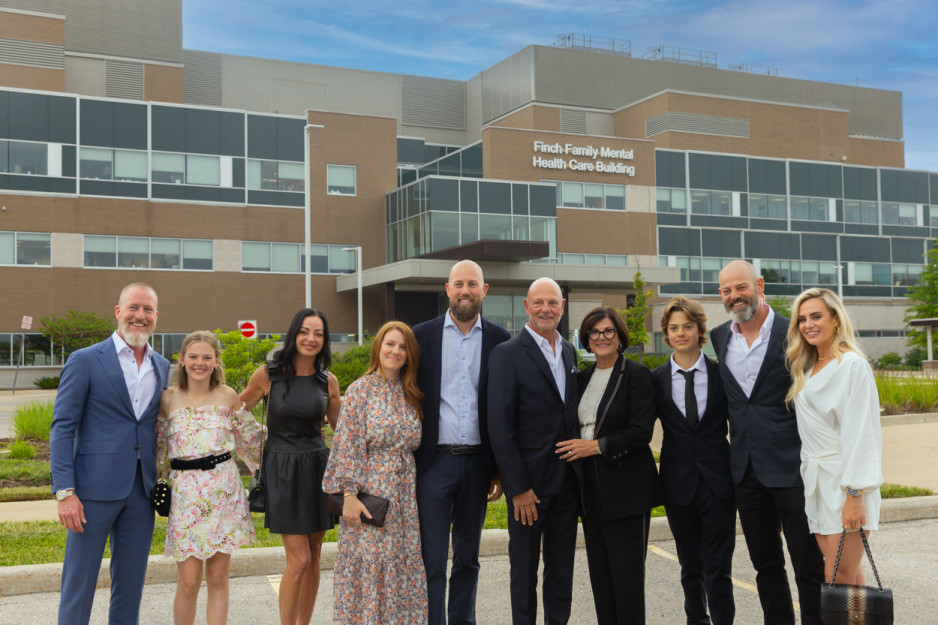Landmark donation is advancing mental health research
Ryan Finch is deeply committed to making transformational change to mental health care. His drive to stand up for mental health is fueled by personal experiences and what he sees happening in the community - and he’s in it for the long term.
In June 2023, he took his decade-long support of mental health care at St. Joseph’s to a new level by donating $5 million to advance mental health care research.
It was - and continues to be - the largest gift of its kind in the region.
As the gift was announced on a rainy afternoon, Ryan shared his hopes for the difference his donation would make.
“I hope this donation improves access for people in need. I hope this donation spurs research that leads to more treatment and breakthroughs. And I hope this donation inspires young business people out there to share their good fortunes. But what I really want to do is to let everyone out there that’s hurting know that we care,” he said.
Ryan’s donation was directed to support an innovative new term research Chair in Mental Health System Transformation – a first in Canada, to develop special and collaborative initiatives that further mental health system changes in London. Additionally, the gift funded an expansion of a groundbreaking research project - the Mental Health INcubator for Disruptive Solutions (MINDS) led by principal researcher Dr. Arlene MacDougall.
Not even 12 months later, he’s already seeing the positive impact of his support.
Recently, Ryan, his parents and the managing partners from Finch Auto Group joined Jodi Younger, Vice President, Patient Care and Quality, Dr. Viraj Mehta, interim Chief of Psychiatry and Dr. MacDougall to learn more about St. Joseph’s leadership work in mental health care and more details about how Ryan’s donation is advancing research with MINDS 2.0.
Building on the success of the original MINDS work, 2.0 is designing, piloting and testing innovations to make a difference in the lives of people aged 16 to young adult who are experiencing severe and complex mental health and addiction issues.
During the roundtable discussion, Dr. MacDougall highlighted several specific areas of work that the research team has engaged with during the past year.
To better understand the lived experiences of youth and young adults, the team launched a series of sensemaking events. The goal was to learn more about how people felt about their mental health and/or addiction care journey, what they believed were the biggest mental health and addiction issues for youth and young adults in the region and what they might change in the system to improve it. After 14 thoughtful sessions, the team is now validating their learnings to inform change.
They have also been working on two programs to catalyze mental health system innovations locally. Launching in late summer 2024, the first program, Collective System Innovation, will bring together and support people with lived/living experience, system leaders and service providers to collaboratively design potential solutions to mental health care system issues.
The other, known as Mindful Social Innovation training, is intended to build capacity across mental health and addiction care system providers and leaders so that they can be agents of change and how they can work collectively to create, implement and evaluate new system solutions in an ongoing manner. This is scheduled to launch in the fall of 2024.
To build greater capacity and learn from their peers, the research team is also planning a national conference to create a Canada-wide community of system innovators. The hope is that bringing together people who are all invested in system change will create even more opportunities to learn about, adapt and adopt positive solutions to mental health and addiction care system challenges.
For Ryan, who is particularly concerned about the burgeoning numbers of people struggling with mental health care concerns, hearing about the research advancements through MINDS 2.0 in the past year was gratifying.
He’s equally concerned about homelessness in the community.
“It’s easy to see homelessness in London,” says Ryan. “You really see it on every corner, and we have to do better for people.”
It’s why he’s so proud that his support is having a direct impact on the city-wide Health and Homelessness initiative through the funding of a research manager.
And while this landmark donation is foundational to making system change, Ryan continues to meet the ongoing mental health care needs in the community in several ways including through his support of St. Joseph’s Breakfast of Champions. In 2024, Finch Auto Group once again was the presenting sponsor; the London Mercedes Benz dealership, which is part of the Finch Group, also sponsored the event.
As a business leader, Ryan says he feels lucky to give back. It was his goal to have this donation find new ways to make it easier for people to access mental health support. Today, he’s feeling positive about the advancements he is seeing and looks forward to the coming months of change.



